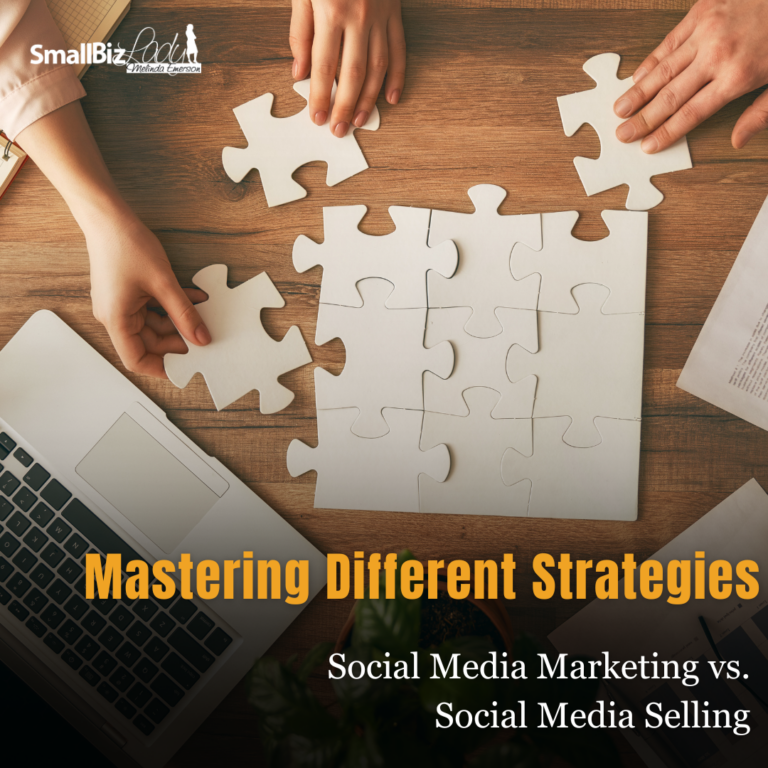
This special report is about how to focus on a specific target customer as you build your new business. As an entrepreneur, you have to use your marketing dollars wisely. One way to prevent you from going on a wild goose chase for the wrong customer is to identify a niche customer. You also need a system to evaluate potential customers who have no real interest in doing business. We’ll also examine whether cold calling is a good use of your time.
What is a niche?
What the heck is a niche? Webster’s Business Dictionary defines a niche as a “particular market or specialty area where a company finds it profitable to concentrate its efforts. Niche marketing offers a concentration of clients in an area of limited competition.”
Most start-up entrepreneurs make the mistake of trying to go after too broad a market. They chase either too many clients or too many diverse industries. Even though they have limited time and resources, they chase every ambulance going down the street that they think might have money in the back. After months of doing this, their business is on life support and in need of emergency care.
If you try to sell to anyone with money, you’re going to struggle in business and not be known for anything. Consider this: Lots of people sell shoes. Why should anyone buy them from you? Lots of people sell marketing consulting services. What makes your services so special? Anyone can print my business cards. What difference does it make to my business if I use your service? Do you have an answer for this in your business?
Nobody wants a generalist; they want a specialist—with experience in solving their specific business need. When a vendor has exactly what the client needs to fix their problem, the conversation moves past selling straight to budget, timeline and delivery. And the best thing about being a specialist is in most cases you can charge more for being one, too.
Some advantages of niche businesses are:
- It is so much easier to market your services when you know your customer.
- Running a niche business removes a lot of the guess work in your marketing efforts.
- Industry circles are typically smaller so referrals (which is how 90% of business is done) can happen much more quickly.
But how do you choose a niche that’s right for you?
Products come and go, but niche audiences stay forever. There is always the possibility that demand for your product or service will decline over time, which will leave your business with declining revenue. But if you have a niche target customer that you study closely to understand their needs, wants and biggest challenges, you will always know the next product or service you should develop. Your goal should be to find a niche you can dominate. Start with your passion. It really is all about what drives you. Then, consider whether there is room in the marketplace for you to become the best in your industry. Focus on the unique value you can bring to your target customer. Then, figure out if there is a profit center. You must make money; otherwise, it’s an expensive hobby. Focus on developing a profitable business model for your new business.
How to validate your niche
- Select your niche- pick a specific group of customers you want to serve.
- Focus on their pain points – Do your homework on your target customer. What are their issues? Make a list of the reasons why your niche customers need your products or services.
- Determine the most profitable pain points – What are the problems your customers would gladly spend money to resolve? Internet research on keywords in your industry might be a great way to determine the biggest opportunities with your target audience. A great keyword search tool is www.wordtraker.com
- Become an expert in the pain – You need to know why this is such a big issue for your customers and what kinds of solutions they might be looking for. If your target is professional working moms, their biggest challenge is time. These women have three full-time jobs: wife, mother, and businesswoman. She does not just need daycare or aftercare; she needs someone to run errands, too. What she really wants is an ad water solution. She wants a service to make sure the person is pre-screened. The answer is www.care.com, which offers part-time and full-time babysitters or nannies with reference checks, background checks, and CPR certifications pre-done.
Where can you find a niche?
A niche can be anywhere from under (or on) your nose (think Breathe Right strips for snorers) to cyberspace, where eBay and YouTube, among others, have generated millions. You might stumble on it. I spoke to a CPA friend of mine who specializes only in restaurant accounting.
Go With What You Know. Some popular niches include virtual call centers, personal training, beauty salons/spas, travel agencies, gyms, computer repair, technical/online support, and business coaching.
Work for A Business Like The One You Plan To Start. If you work for a business like the one you plan to start, you may see a niche that your employer is ignoring.
Look for “You Must Be Kidding” Opportunities. The enterprising entrepreneur will find a pot of gold in everything from bathroom maintenance services, pest control, window washing, and maintaining septic systems to building a business pet sitting.
Turn a Hobby into a Money Machine. Stories abound about cookie makers (Famous Amos, Mrs. Fields, etc.) who went from the kitchen to national enterprises because they were tuned into America’s taste buds.
Invent Something. Mother Necessity is always looking for solutions to problems. The Butler Bag, PedEgg, plastic garbage bags, the Jet Ski, and WD-40 are just a few of the many products created by inventors who made a niche where none existed before.
Focusing on a niche market is a choice. Would you like fish in a big lake or a small lake just after the trout have been stocked for the fishing season? The smaller lake gives you far better odds of eating fish for dinner that same night.
Do You Qualify Your Sales Leads?
Every business owner is a salesperson, and when you are starting out you have a certain amount of time to qualify new opportunities. The best salespeople only spend time with companies that are ready to buy or can explain a pain point in their business they're looking to solve.
One of my coaching clients called me recently asking what to do about a prospective client who keeps setting up appointments and then breaking them without notice. I think you should allow people one screw-up; people are human. But just a meeting or scheduled conference call more than once is a big red flag.
Years ago, Oprah said," People show you who they are for the first time." Now, she was talking about dating, but the same rule applies to prospective clients. If the client can't keep appointments or get back to you, it might mean they are really unorganized or that they do not value your time. Either way, walking away early is the best thing. Imagine what it would be like actually to work on a project. When you decide to move on, be careful not to show any annoyance or hostility to the prospective client. The next time they call, simply say you are unavailable due to a huge new client you just took on.
Effectively qualifying opportunity requires you to have your ACT together! ACT is an acronym for the three key steps in the qualification process:
Ask for their budget. The phone screen is key to avoiding wasting time. Before you agree to your first appointment, find out what the budget is for the project. It's common to hear, "We have no idea, we are just gathering information." or "Can you send me some information." Respond with, "I would be happy to send you my marketing materials or a link to our website. When you are ready to move forward with some idea of a budget, I would be happy to meet with you and any other decision-makers."
Credibility. Now, you need to validate their request. Try this, "I have several pieces of information I could send. Can you please tell me a bit about your business issue? If they say, "Just send me what you have," you are not dealing with a well-qualified opportunity. If they tell you about their business and the problem you will be solving, you should aggressively move forward.
Test. In the final step, you will test the prospect's intention by establishing the next steps. Ask something such as, "Once you have the information, what is your timeline? What are the next steps?" Their response will give you insight into the seriousness of this business opportunity.
It's a big mean world out here, and many times, people will waste your time by picking you clean for free ideas, pricing, or just because they have no clue about your service. Don't be fooled! Time is money. Qualify your prospects and watch your sales significantly increase!
Should You Still Be Cold Calling Customers?
This is an excerpt from my interview with Bradford Shimp, a small business expert and sales trainer. He specializes in helping small business owners solve the problems that hold them back and showing them how they can build amazing companies.
SmallBizLady: Is cold calling dead?
Bradford Shimp: No. Many businesses still use cold calling, but it is losing its effectiveness. Cold calling relies on interruption. Today, people have access to information when they need it, so they are less likely to put up with cold calling. People are far less likely to trust someone based on a cold call, and trust is very important.
SmallBizLady: What is the difference between cold and warm calling?
Bradford Shimp: Warm calling is making sales calls after making preliminary contact. Warm calling works best when it is tied to another form of marketing, such as educational or event marketing. Warm calling can refer back to a marketing piece, a form filled out at a trade show, or any form of previous contact.
SmallBizLady: What is permission-based marketing?
Bradford Shimp: Permission marketing is when prospects sign up to receive messages from you. Instead of you interrupting their day with messages they don't care about, you are invited to speak to them. Permission marketing is about having prospects qualify themselves.
SmallBizLady: How do you get permission from someone to market to them?
Bradford Shimp: You need a complete marketing plan to gain a constant stream of permission. The basic concept is to provide something of value in return for permission to market further. Permission can include signing up for a newsletter, attending an event, or requesting more information.
SmallBizLady: Cold calling brings results; why should I stop?
Bradford Shimp: Cold calling is a numbers game. For every yes, you have 10 or more no’s that are closed doors. Using permission marketing, you can keep the conversation open, even with people who aren't buying right now. By building marketing around conversations and education, you can create a steady stream of leads that will grow virally.
SmallBizLady: Why should businesses make the extra effort to educate customers?
Bradford Shimp: By educating, you set yourself up as the expert. This allows you to set the course of the relationship. Educating allows you to "sell without selling." Prospects, thank you for the info, and go to your first to buy. When you create educational marketing, you can re-purpose it in many ways.
SmallBizLady: How can social media help businesses avoid cold calling?
Bradford Shimp: Social media is a great place to communicate, attract fans, and build relationships. Your followers have given you permission to talk to them. Just don't be all sales talk all the time. From conversations on started on social media and using lead magnets, you can move into a sales process. This works to open the door to a ton of prospects. It is your job to attract qualified prospects by providing quality content.
SmallBizLady: Why is building an email list the most important thing businesses should be doing?
Bradford Shimp: An email list built on permission is a group of people who have pre-qualified themselves as real prospects. With regular email, you can build trust with prospects and upsell current customers. An email list is a database of prospects you can dip into when you need to add sales. Put out a good newsletter and good value for signing up, and your email list will continue to grow. Unlike cold calling, you will be able to communicate 1 to many, but with a much larger trust factor.
SmallBizLady: How can we use events to bring in loads of new customers?
Bradford Shimp: Events allow you to invite prospects to something they will value without directly selling to them. Make your event specific, and it will attract ideal, pre-qualified prospects. You can build a huge level of trust quickly by providing a quality event. People will be inclined to buy from you.
SmallBizLady: Should a small business have a blog/email newsletter?
Bradford Shimp: Yes. Providing regular content for customers/prospects has several benefits. It will bring more traffic to your site and provide visitors with instant value. It will educate prospects and build trust, making them inclined to buy from you and trust you. It will make you better at your business. Creating content on your niche will inevitably make you an expert.
SmallBizLady: What kind of conversations should businesses be having with their customers/prospects?
Bradford Shimp: Conversations should be about much more than making the sale. You should seek to educate, to answer questions, to ask questions. The biggest thing is to build trust and provide endless value.
Have You Heard About SmallBizLadyAcademy.com?
🌟 Ready to take your business to the next level? Join SmallBizLadyAcademy.com today and unlock a world of support, resources, and growth opportunities!
🚀 Don't navigate the entrepreneurial journey alone! Led by Melinda Emerson, "SmallBizLady," our community brings together like-minded women in business. Whether you're a start-up entrepreneur or an existing business owner looking to scale, we have valuable advice to share.
💡 Gain exclusive access to a treasure trove of content tailored for every stage of your business journey. From online courses for self-paced learning to live monthly coaching sessions and member roundtables, we provide the tools and guidance you need to succeed.
📚 Dive into our resource center, which is packed with eBooks, templates, and invaluable insights to streamline your operations and drive results.
🌐 SmallBizLadyAcademy.com is available in English and Spanish, ensuring accessibility for all entrepreneurs. Our certified coaches are fluent in both languages and ready to support you every step of the way.
💬 Get all your burning business questions answered and join a vibrant community dedicated to your success. Don't miss out—sign up now and embark on your journey to entrepreneurial excellence!
I can’t wait to serve you as your coach,
Melinda F. Emerson “Smallbizlady”
SmallBizLady Enterprises
P.O. Box 280
610-352-0680
Email: melinda@melindaemerson.com
Twitter: https://twitter.com/smallbizlady
IG: https://www.instagram.com/smallbizlady
Facebook: https://facebook.com/smallbizlady
All Rights Reserved. ©2024 Melinda F. Emerson
Categories
Recent posts


Are You Selling to the Right Customer?
2 Jul 2024
How to Handle Your Afternoon Slump in ...
29 Aug 2024
How to Build a Team
13 May 2024




